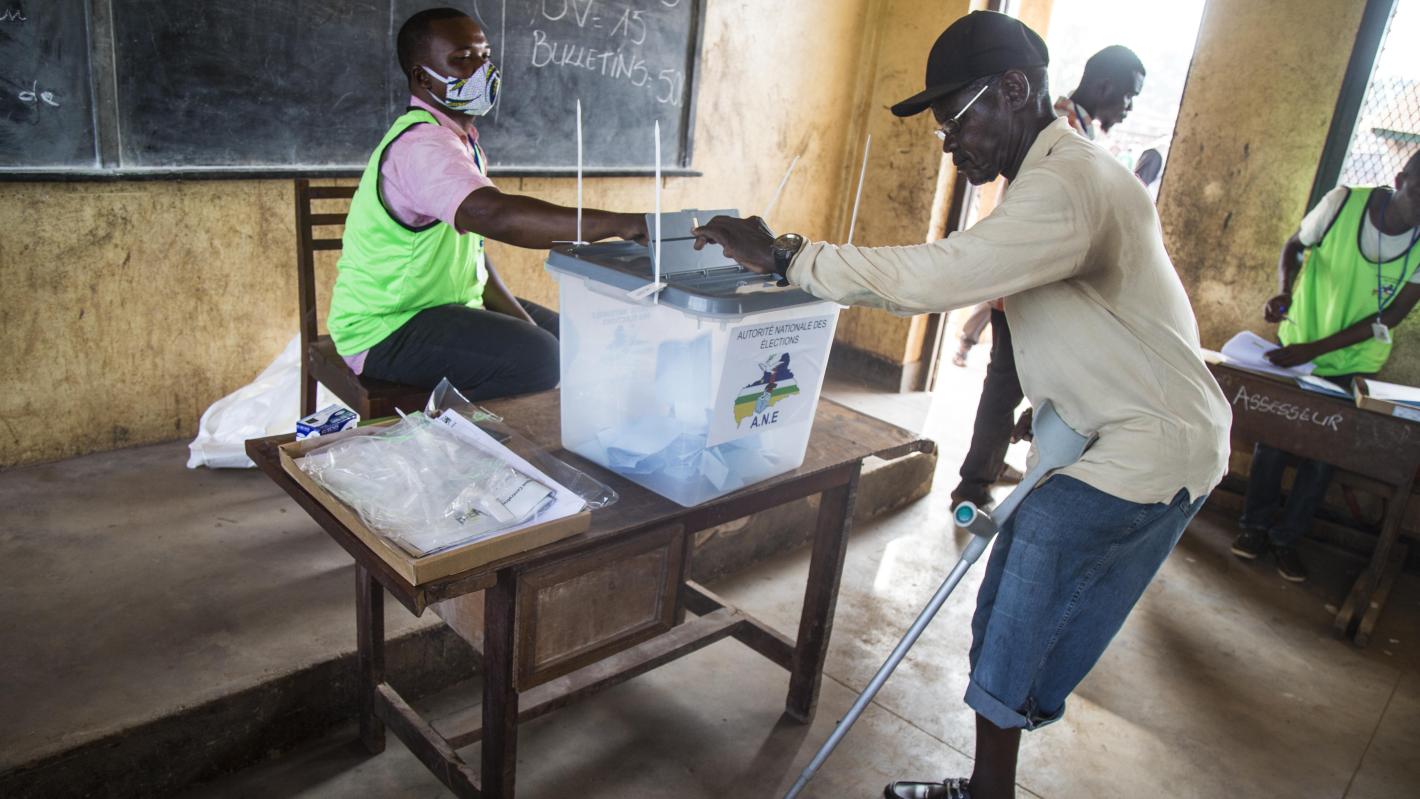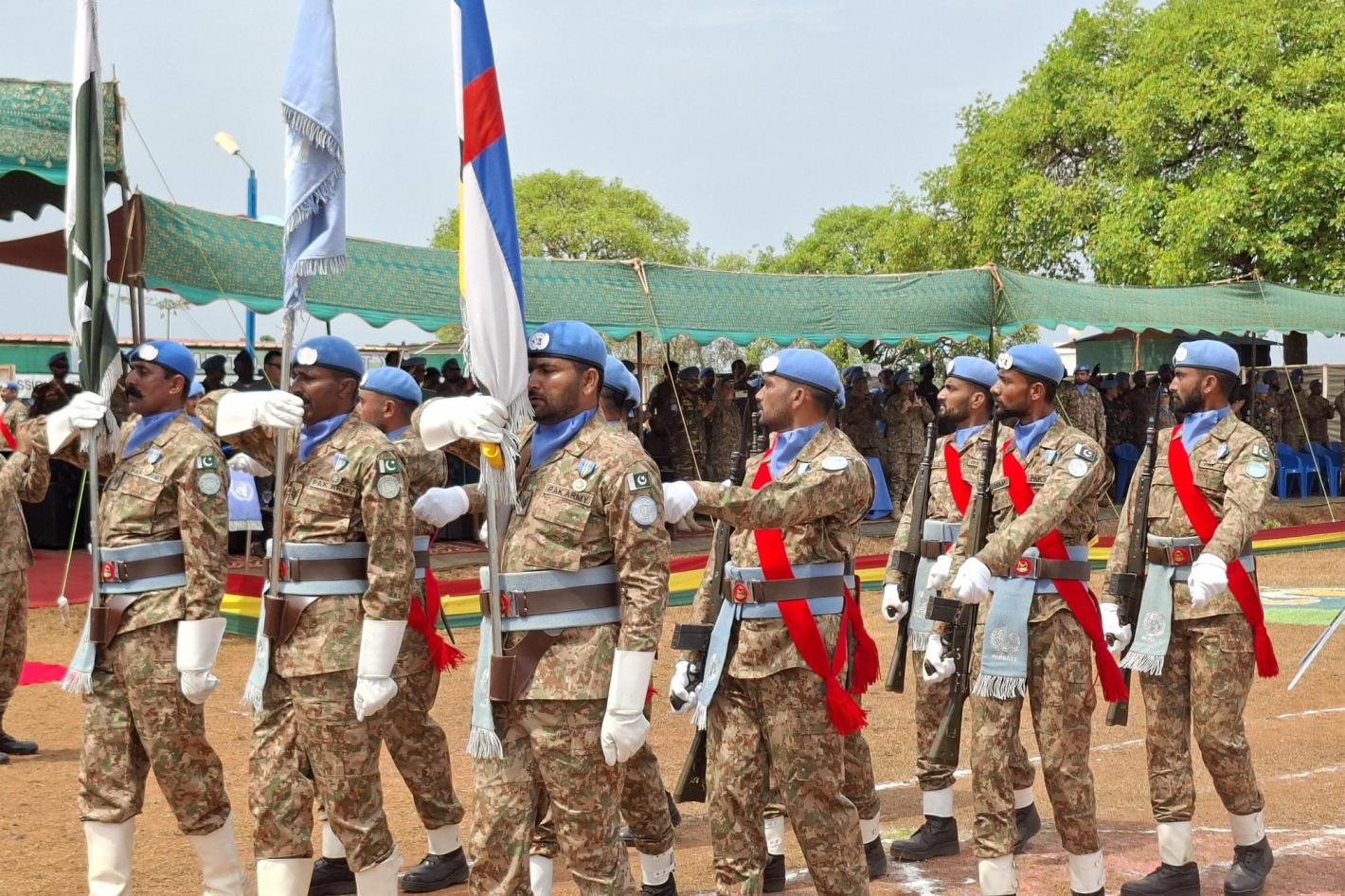Voting is underway in the second round of the legislative elections in the Central African Republic (CAR). Significantly, voters who did not have the chance to vote in the recent 27 December elections due to security constraints will also be choosing their preferred candidates.
A slow trickle of voters lined up to check for their names on the electoral lists before casting their ballots at the Petevo School polling station in Bangui’s 6th arrondissement as voting opened.
Calm reigned in Bangui and its surrounding areas on election day, in stark difference to the December 2020 presidential and legislative elections when tension descended on the country’s capital and many parts of the country in the run-up to the elections.
“The Internal Security Forces (FSI) and the UN Peacekeeping Mission in the Central African Republic (MINUSCA) are working together to ensure security. For the moment, the situation is calm,” confirmed Bienvenu Ngaro, a National Elections Authority (ANE) representative at the Petevo School voting center.
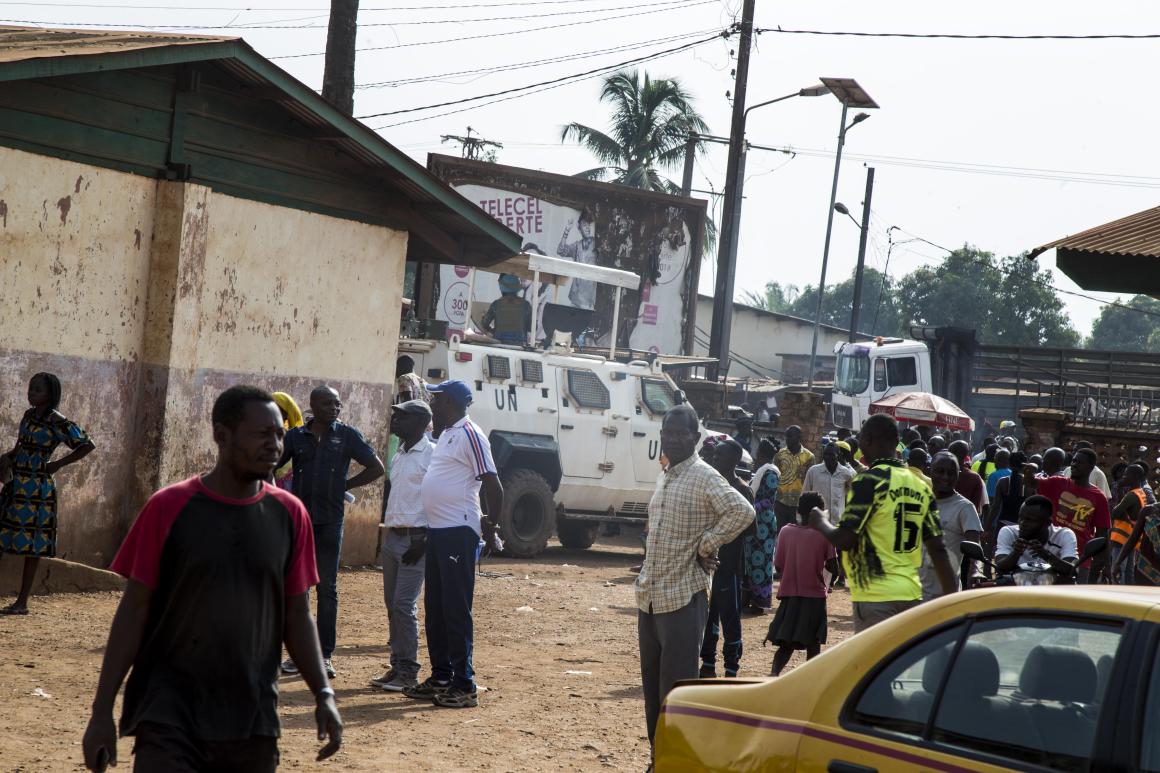
Reinforced security
Security has been beefed up in Bangui and the provinces in preparation for the elections – with the Mission and CAR authorities conducting joint “show of force” patrols to reassure the population on the eve of the elections.
While on a tour of voting centers, the Special Representative of the Secretary-General and Head of MINUSCA, Mankeur Ndiaye, touched on some electoral challenges: “We have received reports from locations where the vote has not been able to take place, and others where the vote has been disrupted by the members of the armed Coalition of Patriots for Change (CPC). They fired shots to force people to go home, but we are doing our best to ensure that the vote goes ahead.”
The parliamentary elections come two days after the adoption of UN Security Council Resolution 2566 (2021) – on increasing the size of MINUSCA’s military component by 2,750 and its police component by 940 troops. With no end in sight to the fragile security situation in the CAR, the reinforcements will strengthen MINUSCA’s ability to perform its priority mandated tasks – to protect civilians and ease humanitarian access.
The new boots on the ground will boost MINUSCA’s capacity “to prevent and reverse a further deterioration in the security situation” and create space for the political process to move forward – of which elections are a key component.
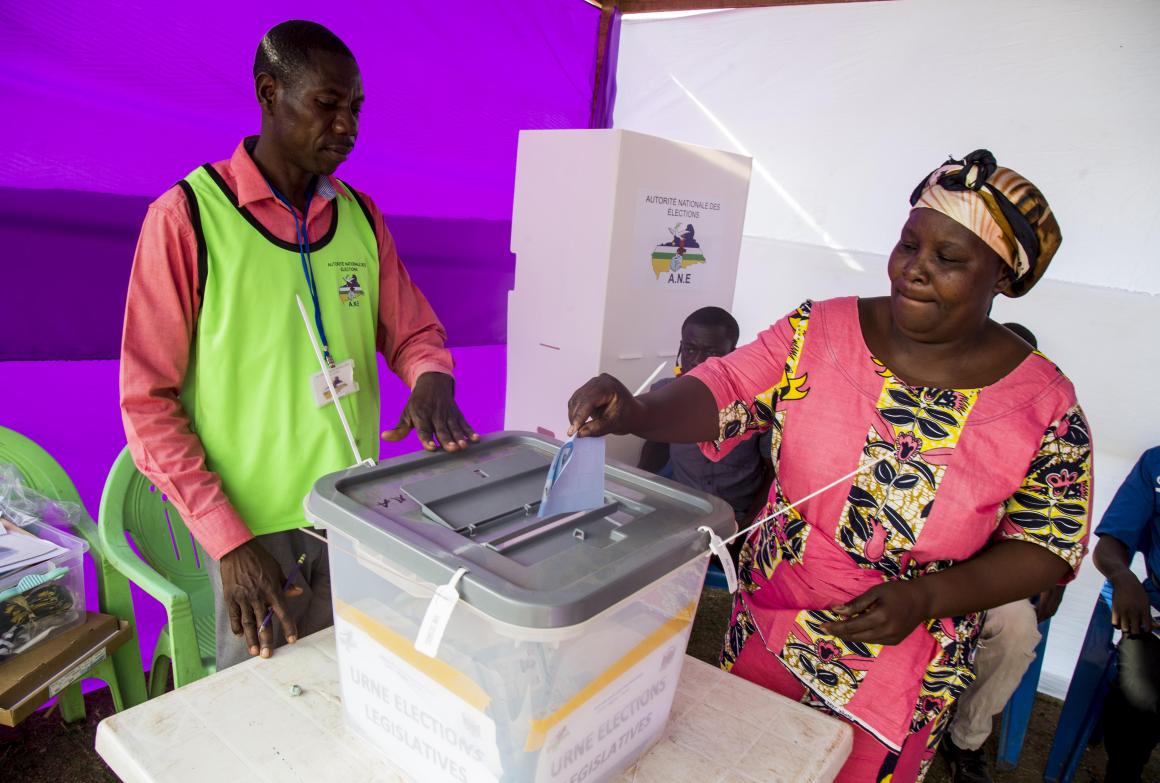
Massive turnout
Throngs of voters – the majority of them women – flocked to the PK5 polling center to cast their votes. Similarly impressive crowds turned up at the Koudoukou and Lakounga voting centers, in the city’s 3rd and 2nd districts.
In Bossangoa (north-western CAR), where voters had not been able to cast their ballots in the 27 December elections, a large crowd had gathered at the Borro School polling station by 6:00 a.m, long before voting started. Still in the northwest, things were quieter in Paoua, but voters were no less enthusiastic. Huge voter turnout was recorded in Bambari (central CAR); polls opened peacefully elsewhere in the Nana-Mambéré, Mbaïki and Ouham-Pendé prefectures.
Matias Siobendo turned up early to the Petevo School voting center in Bangui. “Voting is a civic duty and an opportunity for me to help shape the future of the country.” he stated.
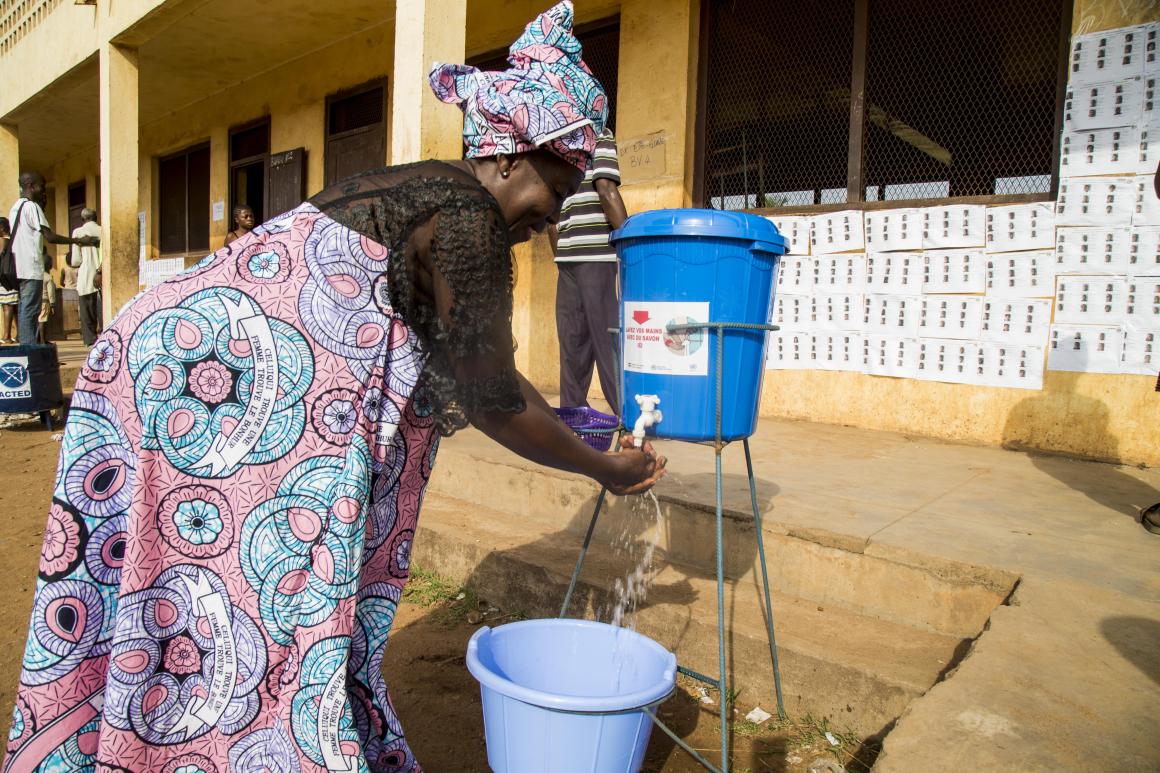
59-year-old Isabelle Bokanda washed her hands in respect of the Covid-19 preventive measures after casting her ballot. “I came to vote because voting is a right,” she said proudly, while calling on her countrymen to do the same. For his part, Jean Lokoua declared: “I am a son of this country. I came to vote for deputies who will defend the interests of Central Africans. I am voting for peace and for the future of our children.”
“We hope that a new National Assembly can be installed in the coming days,” emphasized the MINUSCA Chief, Mankeur Ndiaye. “This is extremely important to avoid a parliamentary vacuum.”


